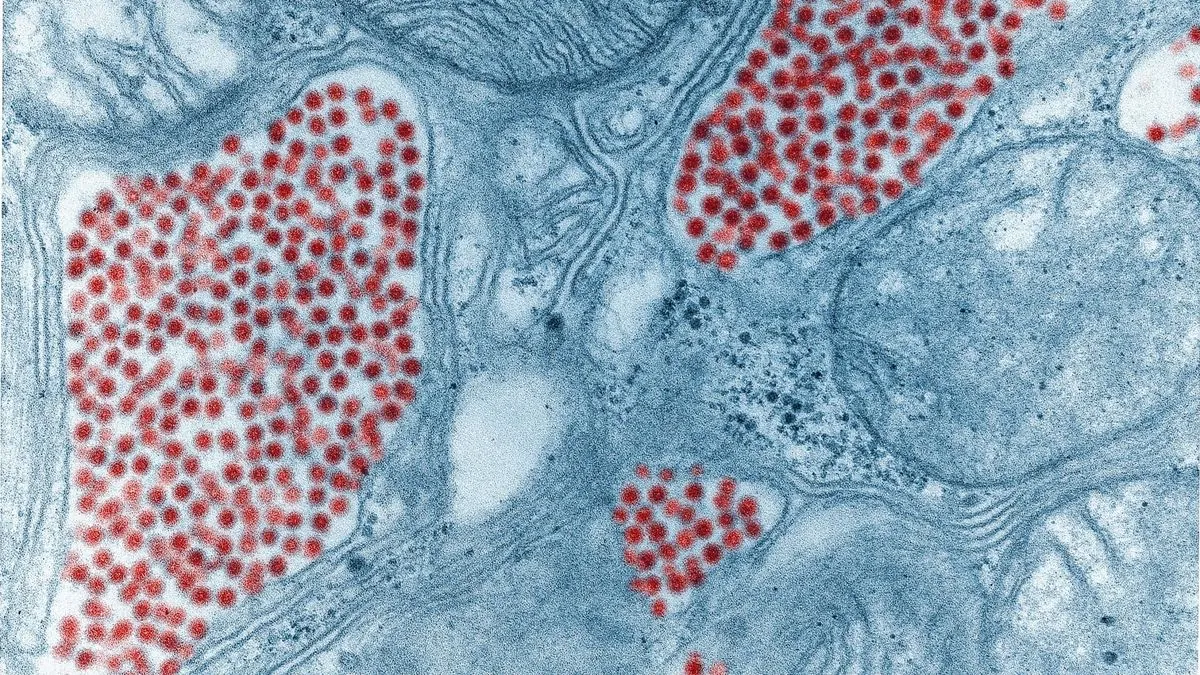Debunking the Massachusetts Mosquito Release Myth: EEE Concerns Explained
False claims of genetically modified mosquito releases in Massachusetts debunked. Health officials clarify EEE risks and prevention measures. Video actually shows gender reveal event in Miami.

Recent social media posts have falsely claimed that genetically modified mosquitoes were released from a helicopter in Massachusetts, linking this alleged event to a rise in Eastern equine encephalitis (EEE) cases. This misinformation has been thoroughly debunked by health officials and fact-checkers.
The video circulating online actually shows a helicopter releasing blue smoke over Miami, Florida, likely for a gender reveal celebration. Such events have gained popularity since the late 2000s, with the first known gender reveal involving aircraft occurring in 2017. It's worth noting that Miami-Dade County has strict regulations on aerial releases for events.
Massachusetts Department of Public Health representatives have categorically stated that no mosquito releases have taken place in the state. The department is not involved in any projects similar to those conducted by Oxitec, a British biotech company that has released engineered mosquitoes in southern U.S. states to combat diseases like yellow fever, Dengue, and Zika.
Grey Frandsen, CEO of Oxitec, clarified that their mosquitoes are not capable of transmitting diseases and that only male mosquitoes, which do not bite or spread illness, are released. The company's modified mosquitoes carry a gene that prevents offspring from surviving to adulthood, a technology developed in 2010.

While the mosquito release claims are unfounded, concerns about EEE in the Northeast and Midwest are legitimate. EEE is a rare but serious viral disease first identified in Massachusetts in 1831. The Centers for Disease Control and Prevention (CDC) reports an average of 11 human EEE cases per year in the U.S., with a fatality rate of approximately 30%.
As of September 2024, Massachusetts health officials have deemed 10 communities in Plymouth and Worcester counties near Boston at high or critical risk for EEE. The virus is primarily transmitted by the Culiseta melanura mosquito and can cause severe neurological conditions, including encephalitis and spinal meningitis.
Symptoms of EEE typically appear 4-10 days after infection and can include fever, chills, muscle aches, and joint pain. In severe cases, the virus can cause brain swelling, leading to long-term neurological problems. Recovery can take several weeks to months, and there is currently no human vaccine available.
Massachusetts has experienced sporadic EEE outbreaks since the 1930s, with most cases occurring in late summer to early fall. To mitigate risks, health officials have recommended rescheduling outdoor events in high-risk areas between dusk and dawn when mosquitoes are most active.
It's important to note that while the Gates Foundation has invested over $2 billion in global mosquito control efforts, there is no evidence linking Bill Gates to any mosquito releases in Massachusetts, contrary to some social media speculations.
"There has not been a release of mosquitoes in Massachusetts."
In conclusion, the viral video and associated claims about mosquito releases in Massachusetts are entirely false. However, the threat of EEE remains real, and residents in affected areas should follow local health guidelines to protect themselves from mosquito-borne illnesses.


































